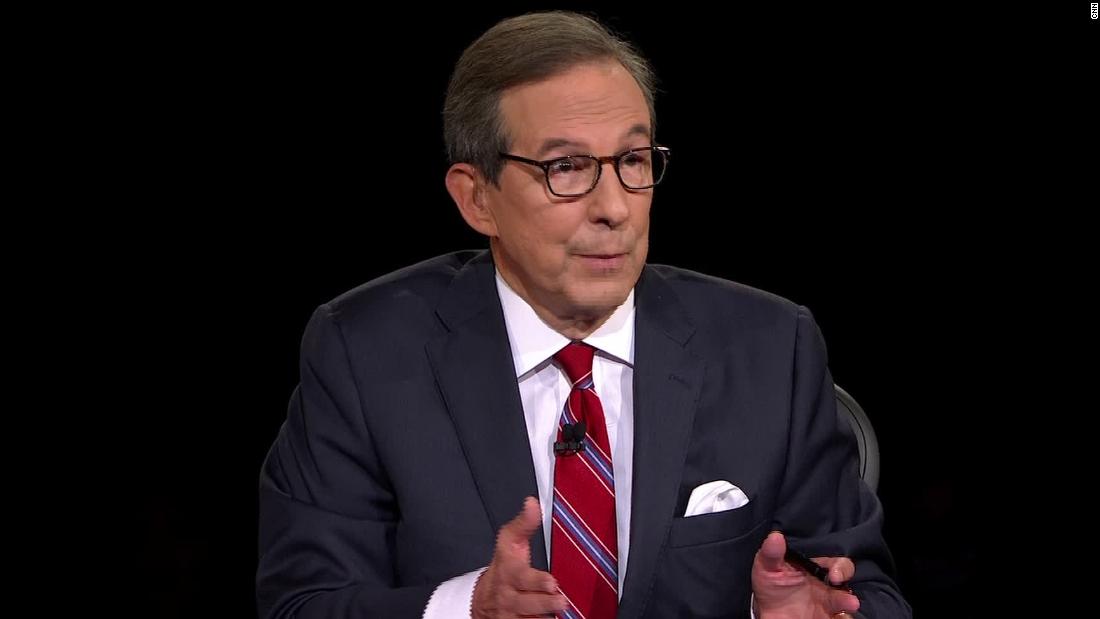
The moderation of Tuesday's debate is the latest example. On Wednesday moderator Chris Wallace told the New York Times that he "never dreamt that it would go off the tracks the way it did." He told The Los Angeles Times that "obviously It was not the debate I had planned for, and to that degree I was disappointed."
I appreciate Wallace's candor and "soul searching" about what went wrong on stage. But as the moderator of the debate, Wallace is acknowledging that he failed to imagine what would happen between President Trump and Joe Biden.
These imaginative failures have happened for five years. Many people didn't believe that Trump was serious about running for office. Many, many people didn't imagine that he could win and didn't imagine that he would debase the office in all the ways he has.
To share a personal example, I failed to imagine that he would stoop to "enemy of the people" rhetoric to wound the nation's news media. I thought people like Reince Priebus and Hope Hicks would rein him in. Obviously no one was willing or able to do so.
This is why an active imagination is so important -- not to assume the worst, but to prepare for all eventualities.
When I searched Twitter, I saw that I wasn't the only person citing a "failure of imagination."
Nor is this concept new to the Trump years.
In a recent news story about climate disruption, Alice Hill, a senior fellow at the Council on Foreign Relations, said that "after every major catastrophe, whether it's Pearl Harbor or 9/11, people always look back and say it was a failure of imagination. That also applies to climate change."
Looking forward and forecasting the future -- while acknowledging all the unknowns -- can result in really creative journalism. Politico, for example, has occasionally employed a "Politico Time Machine" concept to envision what might be ahead.
I hope none the local election officials who are supervising this fall's election have a failure of imagination. Hopefully they are imagining worst case scenarios as well as the best. The same idea applies to newsroom leaders as well: They need to be imagining all the ways Trump might try to upend election norms. He is already engaging in an unprecedented effort to undermine the election.
This imaginative approach shouldn't stop at Election Day, either. What would a second Trump term look like? He is glorifying violence against journalists while his crowds cheer. He is promoting disinformation while his own government warns against it. He is failing to denounce White supremacy. So try to imagine: What would he be saying four years from now?
Wallace punted on this
Oliver Darcy emails: "In his interview with The New York Times, Wallace was asked if Trump had derailed the debate. But instead of providing a clear answer, Wallace punted: "Well, he certainly didn't help." When asked if he cared to elaborate, Wallace replied, 'No. To quote the president, it is what it is.' Given that we all saw what played out on national TV, it seemed rather weak that Wallace would not acknowledge the reality of the situation: That the president's unhinged behavior sent what was supposed to be a debate into chaos."
What Biden said to Wallace afterward
According to the Los Angeles Times, "after the debate, Biden came up to Wallace and whispered in his ear: 'I bet you didn't think you were signing up for a boxing match.' Trump nodded to Wallace but said nothing to the moderator before exiting the stage."
What will the commission do differently next time?
The Commission on Presidential Debates is an old-school, "let's all get along" institution -- in an age of ruthlessness and shamelessness. So it's a good sign that they are evaluating what happened and pledging to make changes ahead of the other two presidential debates. But the initial and obvious answer -- control of the candidates' mics -- is not a complete solution. Assuming the moderator is able to cut the mic if someone interrupts, viewers don't hear the disruptor, but the men on stage still will. And the speaker's mic may well pick up whatever the disruptor said.
Other possibilities, according to The New York Times, include "new limits on speaking times" and penalizing an interrupting candidate "by forcing him to yield more time back to his opponent." The official word from the commission is that nothing has been decided, yet.
A version of this article first appeared in the "Reliable Sources" newsletter. Sign up for free here.
"Media" - Google News
October 02, 2020 at 02:08AM
https://ift.tt/2GuDnCB
Failure of imagination: Why Trump can still shock the media - CNN
"Media" - Google News
https://ift.tt/2ybSA8a
https://ift.tt/2WhuDnP
Bagikan Berita Ini














0 Response to "Failure of imagination: Why Trump can still shock the media - CNN"
Post a Comment